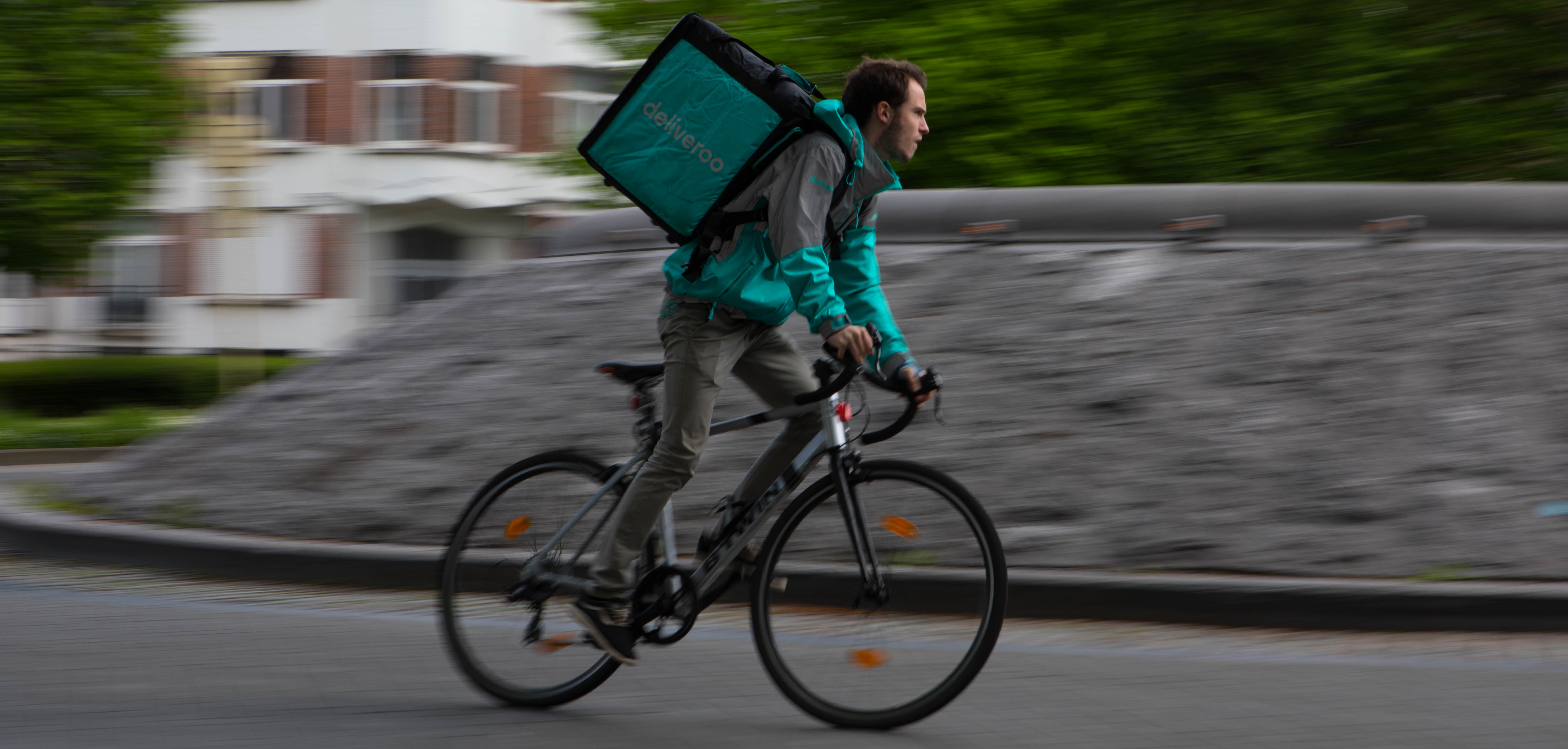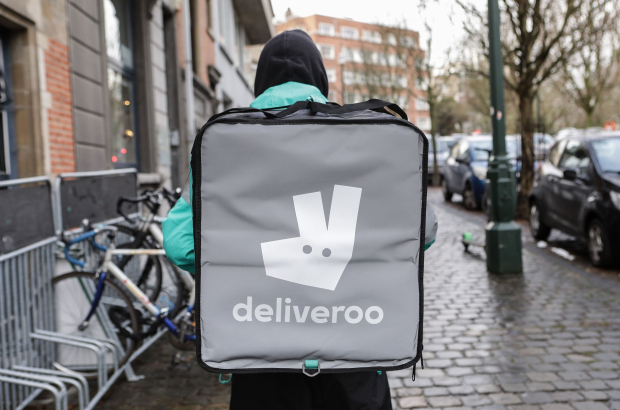- Daily & Weekly newsletters
- Buy & download The Bulletin
- Comment on our articles
Riders take Deliveroo to court over lack of employment contracts
Hearings begin today in a case before a labour tribunal in Brussels that will decide if delivery people working for Deliveroo are employees or self-employed. The outcome of the case could have a significant impact on thousands of people in Belgium who work for meal delivery services, including Takeaway.com and Uber Eats.
The tribunal, which deals with legal challenges in employment or social security-related cases, has its own prosecutorial department. It was the labour prosecutor that decided to take Deliveroo to court, following a two-year investigation by the national social security agency ONSS.
According to the labour prosecutor, Deliveroo riders operate under independent employment statutes but are really being used as employees by the company. The prosecutor is being joined in the complaint against Deliveroo by 27 riders and two unions.
‘Transport company’
The riders want to receive work contracts with all that that entails: A minimum wage, benefits and paid holiday and sick time. “Initially, the riders in Belgium worked as employees through the Smart co-operative,” said Jan Beulens, who is representing the delivery riders and unions. “But at the end of 2017, Deliveroo required all of them to become independent. But the nature of the work has never changed.”
According to the unions, Deliveroo riders cannot be considered self-employed because they have no decision-making power over their own work and no relationship with the customers. Unions consider them transport workers, similar to lorry drivers. Deliveroo “is a transport company rather than an ‘application’, as they call themselves,” said Beulens.
In fact, about 85% of the 3,000 Deliveroo drivers in Belgium are working under what is called a P2P (peer-to-peer) statute, which is less complicated than a fully self-employed statute. P2P was established in 2018 to allow people to earn up to €6,400 a year working for a non-profit, for instance, or doing odd jobs for acquaintances. The tax rate for P2P is very low.
“P2P was established to encourage people to do volunteer-type work or to provide little services for your neighbours,” said Tom Peeters of the FGTB union. “Deliveroo has simply created a labour market with it that is unsecure and doesn’t contribute to society.”

Deliveroo, of course, is saving a lot of tax money by not employing all of those drivers. They do not have to pay anyone who is sick or on holiday and owes little in the way of social security taxes to the federal government.
The company argues that their riders are happy with the way things are, wanting to earn a bit of extra cash, not work for the company full time. The fact that so many of their riders choose to work with the P2P statute rather than become self-employed “shows that they just want to earn a little extra,” said Deliveroo spokesperson Rodolphe Van Nuffel.
More than half of the riders earn less than €3,000 a year, Van Nuffel said. “It’s a side job to them. We have so many people contacting us every month wanting to work. It’s just this offer of flexible, independent work that makes us so popular.”
Belgium is not the first country to see a case against Deliveroo get into the courts. In the Netherlands and Spain, Deliveroo drivers won and must now be hired as employees. But in France and the UK, the courts found in favour of Deliveroo. The case in Belgium is expected to last several weeks.
Photos ©Paul-Henri Verlooy/BELGA


















